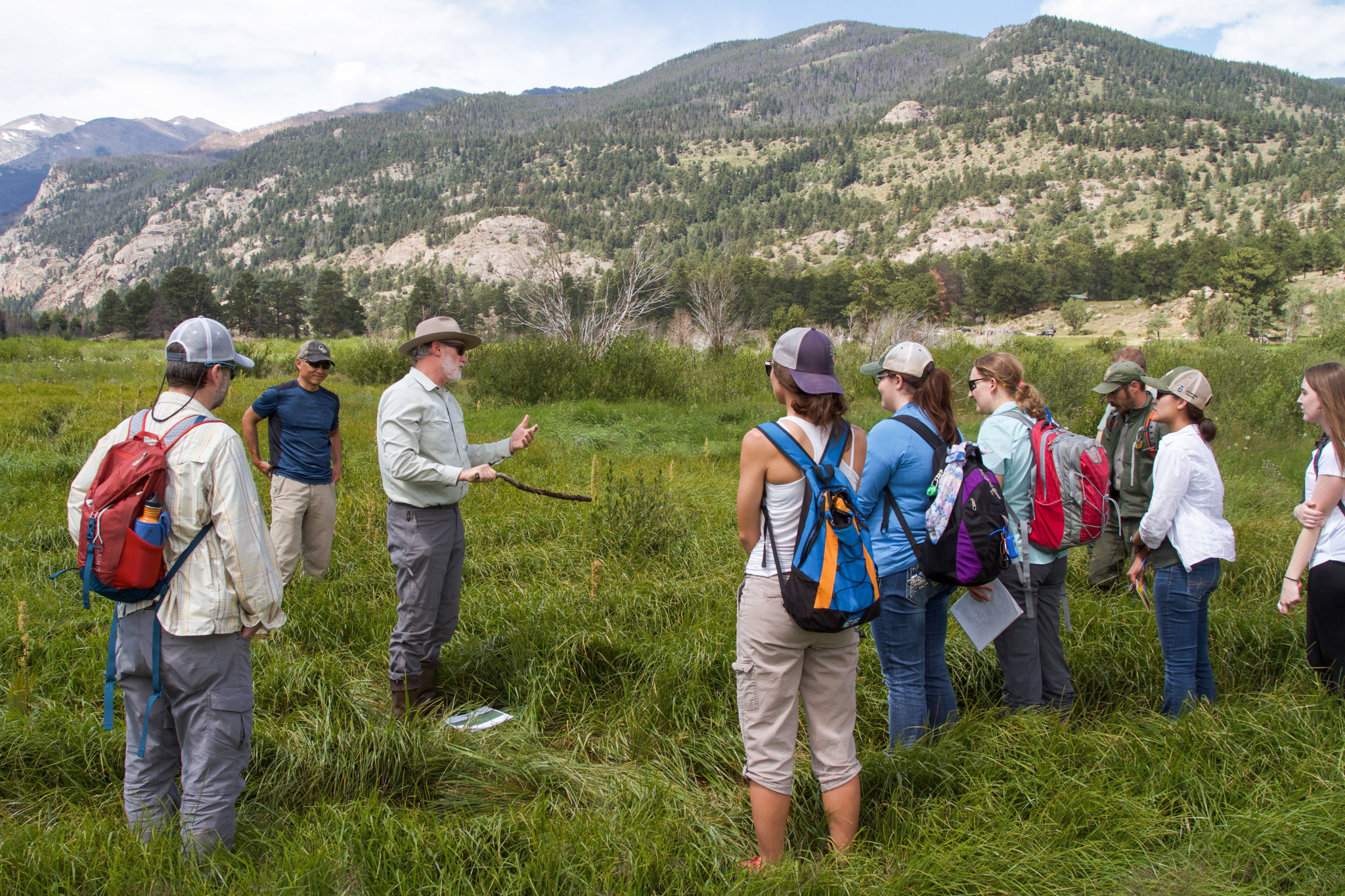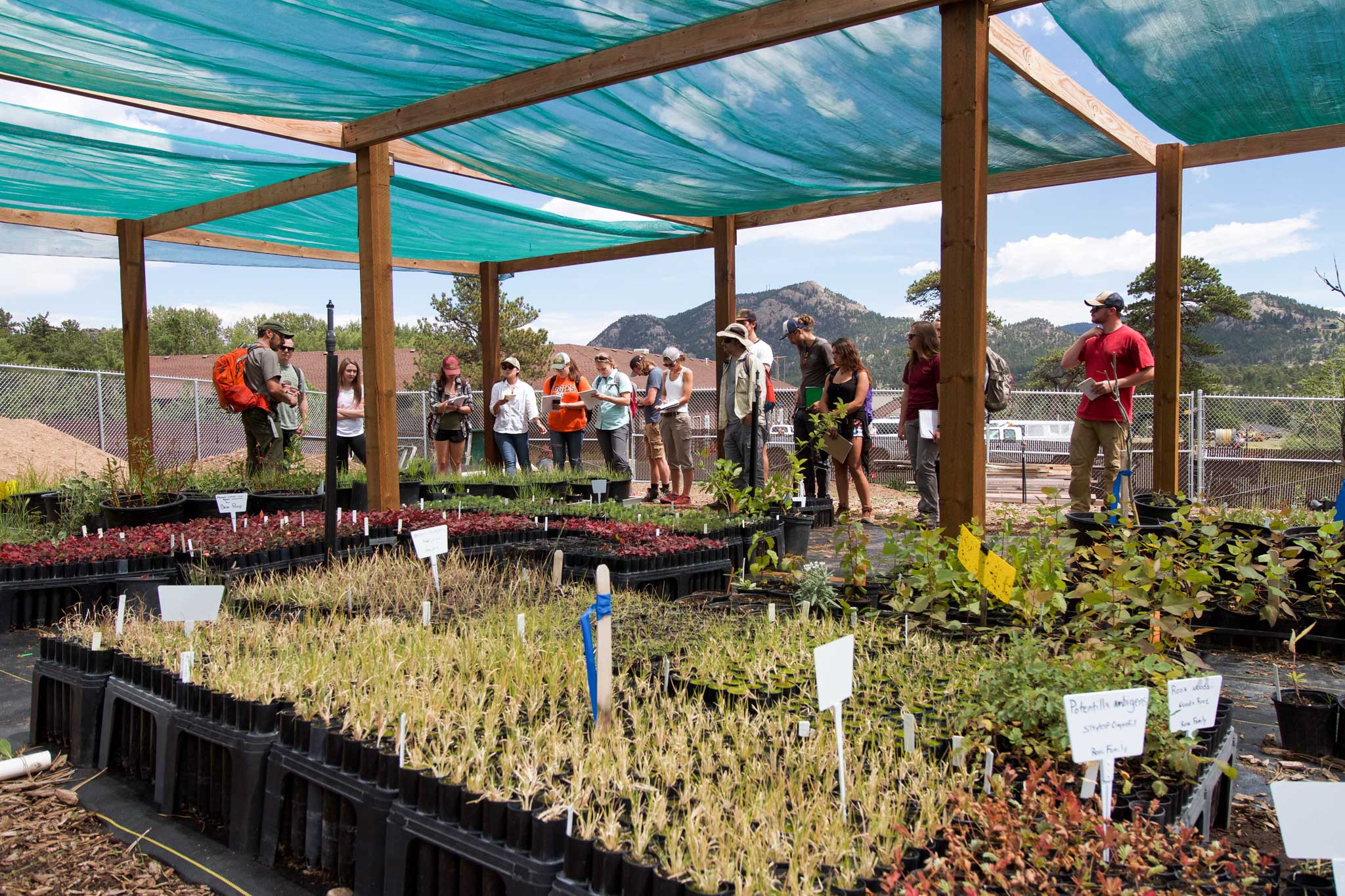
One of the first academic departments at Colorado State University is making a 21st century curriculum update.
Students enrolling at CSU for the 2018-2019 academic school year will have a new option of choosing a four-year Bachelor of Science degree in Restoration Ecology. Also, the current Forestry and Rangeland Ecology B.S. degrees will be combined and renamed as the Forest and Rangeland Stewardship degree. Specialized forestry and rangeland ecology concentrations will continue to be available.
“These degree changes reflect the department’s legacy to prepare students and professionals to tackle natural resource challenges of the day,” said Linda Nagel, the department’s head and a CSU professor. “With a warming climate, higher wildfire risk, and increasing human demands on these lands, this century is already very different from that before.”
Current students – those admitted prior to Fall 2018 – will have the option to complete their original degree paths or opt-in to the updated structure. All new undergraduate students enrolling in fall 2018 and beyond will declare majors according to the new structure.
The department’s on-campus Natural Resources Management and online Fire and Emergency Services Administration undergraduate degree programs and department minors remain unchanged. The Forestry Business concentration will no longer be offered, Nagel said.

Same curriculum, new names
Forestry and Rangeland Ecology are deeply-rooted fields at CSU, with the first forestry class offered in 1904. The current curriculum under the new Forest and Rangeland Stewardship major will be quite similar to what students are already familiar with, but will include a few additional course offerings, depending on the chosen concentration. Students will continue to gain the collaborative knowledge and skills necessary to understand, manage and conserve forest and rangeland ecosystems.
“CSU’s leadership legacy in forest and rangeland stewardship remains central to our curriculum, while our programs have evolved to be increasingly interdisciplinary,” said Nagel. “Our strengths lie in our passion and commitment to helping sustain the many benefits natural resources provide to society through the lens of stewardship and ecological restoration.”

Restoration Ecology is a relatively new scientific field of study that emerged in the late 1970s. It developed to address the new challenge of healing lands damaged by intensive human use and resource extraction, such as mining, deforestation and land fragmentation. The field supports the research and active practice of restoring and rehabilitating natural resources through human intervention. It follows the idea that if we are the problem, we can also be the solution.
“Like the FRS degree, the Restoration Ecology degree will provide students with a strong foundation in the ecology and management of forests and rangelands,” said Professor Mark Paschke, who is also the Research Associate Dean for the Warner College of Natural Resources. “But students in the Restoration Ecology degree will learn how to use that knowledge to heal damaged, degraded or destroyed ecosystems.”
FRS department faculty have taught restoration ecology under the Rangeland Ecology degree for decades. Over his 25-year career at CSU, Paschke has conducted instrumental research in this realm. The curriculum he helped develop has evolved with the field itself. It emphasizes restoring the underlying ecosystem functions within degraded areas, as well as the biodiversity and aesthetic qualities we also value.

Same accreditation, new names
FRS degree accreditations that previously existed with professional societies will be upheld with this change. Having an accredited degree certifies that students who complete these degrees are qualified to meet certain professional standards in their chosen field. Some careers may require candidates to have degrees from accredited programs, which are outlined below.
Accredited by the Society of American Foresters
Forest and Rangeland Stewardship B.S. degree, Forest Biology concentration
Forest and Rangeland Stewardship B.S. degree, Forest Management concentration
Forest and Rangeland Stewardship B.S. degree, Forest Fire Science concentration
Accredited by the Society for Range Management
Forest and Rangeland Stewardship B.S. degree, Range and Forest Management concentration
Forest and Rangeland Stewardship B.S. degree, Rangeland Conservation and Management concentration
Association for Fire Ecology Certified Academic Program
Forest and Rangeland Stewardship B.S. degree, Forest Fire Science Concentration